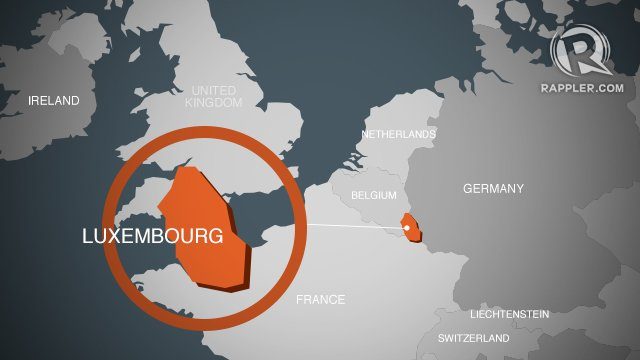SUMMARY
This is AI generated summarization, which may have errors. For context, always refer to the full article.

LUXEMBOURG (UPDATED) – Luxembourg overwhelmingly rejected in a referendum on Sunday, June 7, giving full voting rights to foreign nationals, who make up nearly half the population.
Almost 78% of voters in the tiny European country said “No” to allowing foreigners the vote, according to results from 91 polling stations.
Had the vote been carried, the tiny landlocked country of over half a million people would have been the first in the European Union to grant foreign-born residents the right to vote in all the country’s elections.
Prime Minister Xavier Bettel had billed the referendum as a chance to boost the democratic credentials of the wealthy duchy, which is nestled between Belgium, France and Germany.
A “Yes” vote would be “a yes to more democracy, a yes for the youth, a yes for diversity,” Bettel told Agence France-Presse during campaigning Saturday in the capital, also called Luxembourg.
“There is no other European country where only 40% of the population elects its representatives,” Bettel told journalists ahead of the referendum, in which 244,382 people were eligible to vote.
About 46% of the total population of 565,000 people are foreigners.
“No other country in the world, apart from Dubai, has our level of democratic deficit,” he added.
Bettel’s Democratic Party, which is in coalition with the Socialists and Greens, had proposed to enfranchise foreigners resident in Luxembourg for over 10 years.
Around 35,000 mostly European migrants met the criteria.
‘Political apartheid’
Bettel has led the charge for change in Luxembourg on a number of fronts. He was the first EU leader to enter into a same-sex union when he married his gay partner last month.
“What matters is that we carry on with integration in this country and that we continue to live together and respect one another,” Bettel said.
The referendum has deeply divided Luxembourgers, many of whom fear losing even more influence to foreigners who already play a vital role in the economy.
On her way out of a polling station in the capital, 55-year-old Nicole said she voted “No” because she believed the voting question should be solved by giving more foreigners Luxembourg citizenship.
“I think people should become Luxembourgers,” said Nicole, a municipal worker married to a Frenchman.
Another voter, a civil servant named Claude, disagreed saying: “We must enlarge the constituency and put an end to the political apartheid against foreigners.”
A victory for the “Yes” camp would have shaken up the political landscape because foreign nationals tend to be younger than their Luxembourgish counterparts and more likely to work in the private sector.
After the Portuguese, who account for 16.4% of the population, the Grand Duchy is made up of French nationals (7%), Italians (3.5%), Belgians (3.3%) and Germans (2.3%).
Non-European foreigners – such as Cape Verdians, North Americans and Chinese – account for 7% of the population.
Former prime minister Jean-Claude Juncker’s Christian Social People’s party (CSV) had called for a “No” vote, while the business community and civil society groups backed the “Yes” campaign. – Veronique Poujol, AFP/Rappler.com
Add a comment
How does this make you feel?
There are no comments yet. Add your comment to start the conversation.